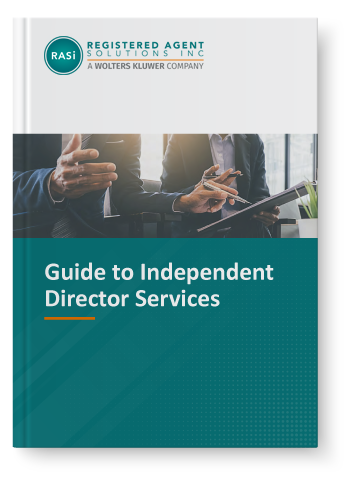
Independent Director Services
Experienced independent directors who help manage risk, meet lender requirements, and uphold board independence.
Independent Directors for High-Stakes Transactions
With over 40 years of collective experience, RASi's independent directors serve companies navigating material actions, insolvency, or lender-driven requirements. We understand the fiduciary duties and independent judgment required to avoid conflicts of interest and preserve governance integrity—especially during distressed or time-sensitive transactions.Pricing Transparency
We charge a single, predictable fee—no matter how many directors you need. We never add extra costs for roles like Independent Manager or Springing Member. Our flat-rate model simplifies budgeting for even the most complex deals.Fast Turnaround, Trusted Process
We move quickly, often placing independent personnel within hours. Our team is built for urgency, delivering director appointments and document support in time-critical situations across industries.What Is an Independent Director?
An independent director is a neutral third party appointed to a company’s board—often in high-stakes or lender-driven scenarios—to offer objective oversight and mitigate conflicts of interest. Independent directors are not involved in the day-to-day operations of the business and are expected to exercise independent judgment and fulfill fiduciary duties to the entity.These directors are frequently required for special purpose entities (SPEs), bankruptcy-remote structures, or capital market transactions. Their presence helps ensure governance integrity, supports risk management, and brings credibility to both the board and the transaction.
Special Representation Services for Regulatory and Transactional Compliance
In complex transactions or regulated industries, RASi can serve as your appointed representative through a private agreement. This role is often used when you need a neutral third party to receive service of process, legal notices, or government correspondence, particularly when appointing an independent director or manager isn’t required but oversight is still needed.
|
|

